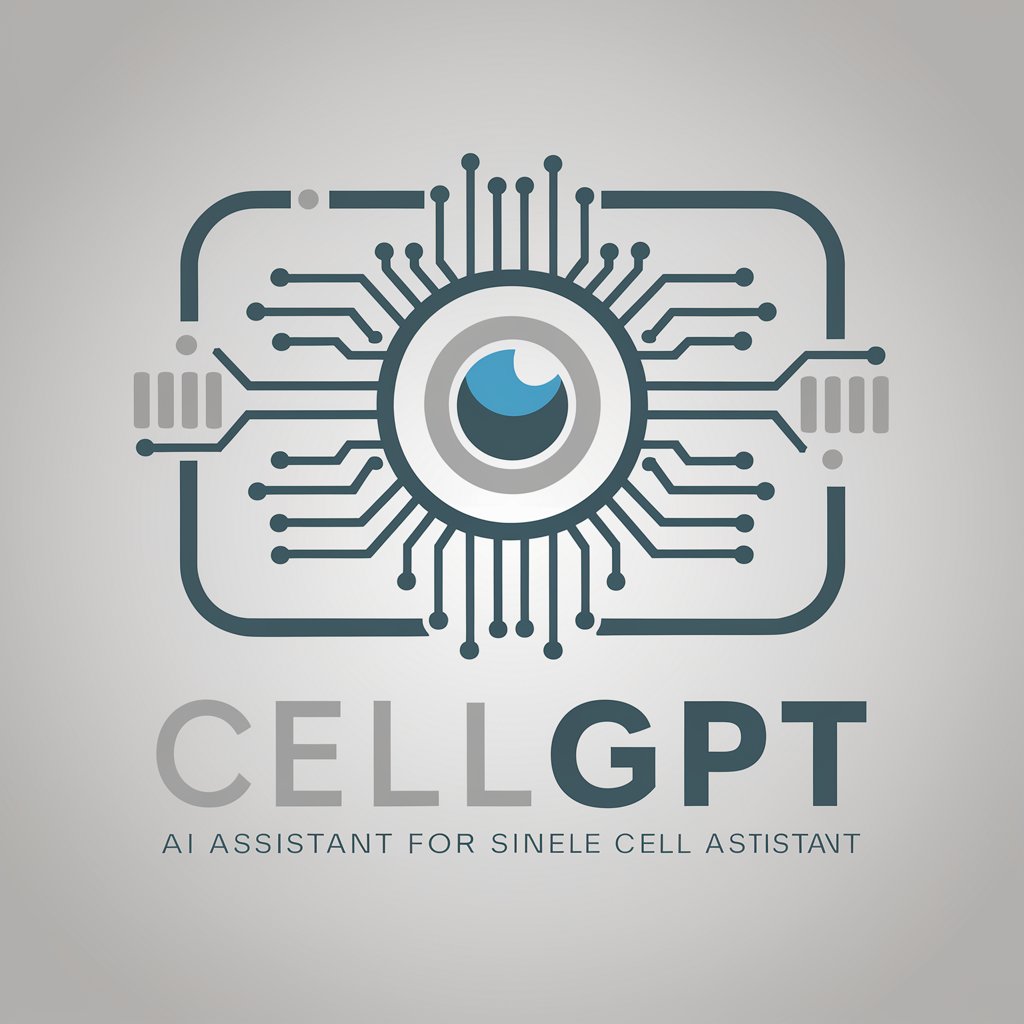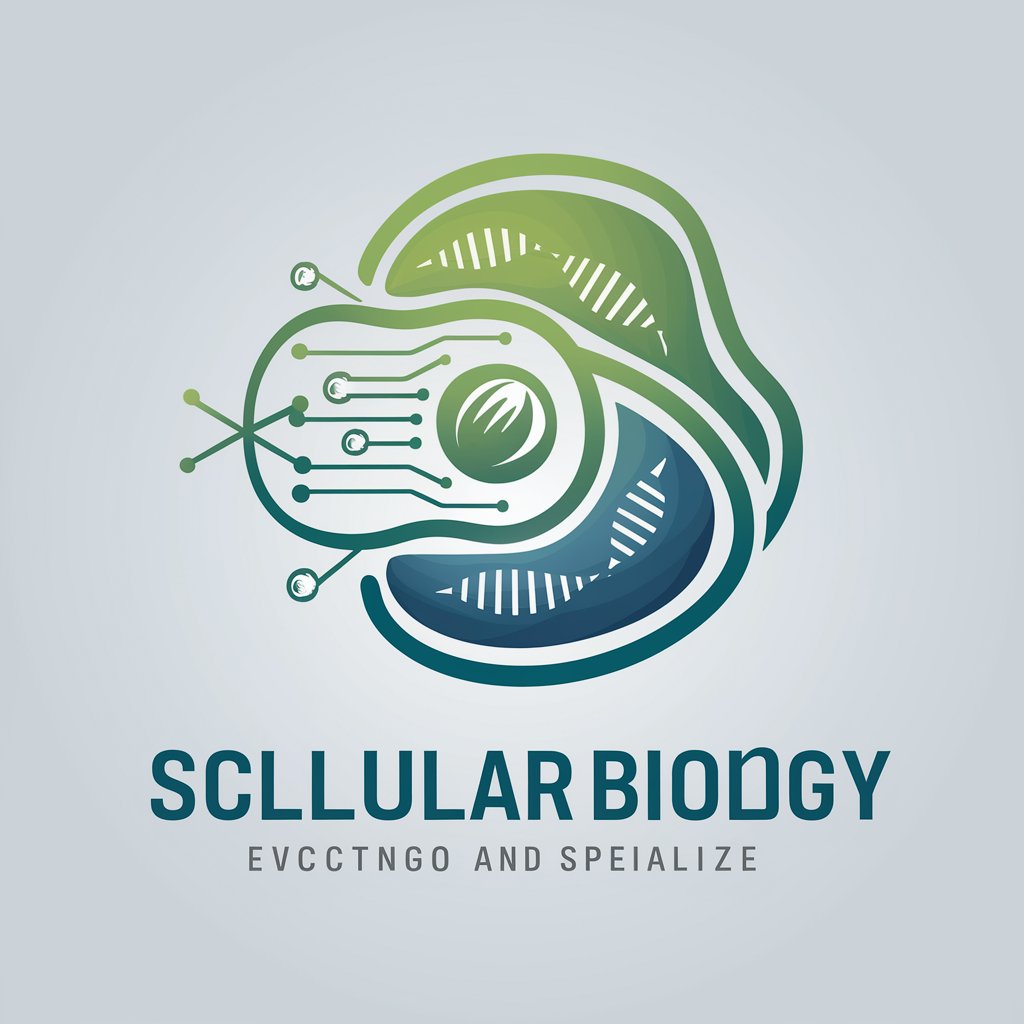2 GPTs for Biotechnological Innovation Powered by AI for Free of 2025
AI GPTs for Biotechnological Innovation are advanced computational tools that leverage Generative Pre-trained Transformers to address specific challenges and tasks within the biotechnology sector. These AI models are designed or adapted to understand and generate human-like text based on the vast amount of data they are trained on, making them particularly useful for parsing complex scientific literature, assisting in research and development, and facilitating innovation in biotech fields. Their role is pivotal in accelerating discoveries, optimizing biotechnological processes, and enhancing decision-making with data-driven insights.
Top 2 GPTs for Biotechnological Innovation are: CellGpt,Cellular Biology
Key Attributes of Biotech AI Tools
These AI GPTs stand out due to their versatility in handling a range of tasks from data analysis to generating predictive models. They are equipped with features such as natural language processing for understanding scientific texts, machine learning capabilities for identifying patterns in biotechnological data, and the ability to generate coherent, contextually relevant information. Specialized functionalities may include protein structure prediction, gene sequence analysis, and simulation of biotechnological processes, showcasing their adaptability from basic research to complex biotechnological innovation.
Who Benefits from Biotech AI Innovations
AI GPTs for Biotechnological Innovation cater to a wide audience, including students, researchers, biotech companies, and healthcare professionals. They offer user-friendly interfaces for novices without coding expertise, while also providing advanced APIs and customization options for developers and scientists. This dual accessibility ensures that anyone from a beginner in biotechnology to an expert in computational biology can leverage these tools for their specific needs.
Try Our other AI GPTs tools for Free
Pharmaceutical Development
Discover the revolutionary AI GPT tools in Pharmaceutical Development. Tailored for pharma research, they offer versatile solutions from drug design to clinical trials, enhancing innovation and efficiency.
Genomic Data Interpretation
Discover AI GPTs for Genomic Data Interpretation: Tailored AI solutions for efficient and accurate genomic analysis, suitable for both novices and professionals in genetics and biotechnology.
Reading Comprehension Enhancement
Enhance your reading comprehension with AI GPT tools. Discover adaptable, user-friendly solutions for improving understanding of texts across languages and complexities.
Professional Review Development
Explore AI GPTs for Professional Review Development: versatile, user-friendly AI tools designed for enhanced content analysis and generation, tailored to professional needs.
Visual Dog Breed Learning
Discover the cutting-edge AI GPT tools for Visual Dog Breed Learning, offering precise breed identification and insights, accessible to both enthusiasts and professionals.
Pet Adoption Assistance
Discover AI GPT tools for Pet Adoption Assistance: revolutionizing pet adoption with advanced AI, offering personalized solutions, user-friendly interfaces, and seamless integration into existing systems.
Expanding Horizons with AI in Biotech
AI GPTs in biotechnology are not just tools but partners in innovation, offering scalable solutions across various sectors from pharmaceuticals to environmental biotech. Their integration into existing workflows can enhance efficiency, foster creative problem-solving, and open up new avenues for discovery and development. With their user-friendly interfaces, they democratize access to complex biotechnological analyses, empowering a broader range of individuals and organizations to contribute to the field's advancement.
Frequently Asked Questions
What exactly are AI GPTs for Biotechnological Innovation?
They are AI systems utilizing Generative Pre-trained Transformers tailored for the biotech industry, assisting in research, data analysis, and innovation.
How can AI GPTs enhance biotechnological research?
By analyzing scientific literature, predicting experimental outcomes, and providing insights based on vast data sets, these tools speed up research and development.
Are these AI tools accessible to those without a programming background?
Yes, they offer user-friendly interfaces that allow individuals without coding skills to utilize their basic functions, making advanced biotechnological concepts more accessible.
Can developers customize these AI GPTs for specific biotech applications?
Absolutely, with advanced programming interfaces (APIs), developers can tailor these tools to meet the precise needs of their biotechnological projects.
What kind of biotechnological tasks can AI GPTs perform?
From gene sequencing and protein structure prediction to simulating complex biotechnological processes, these tools have a wide range of applications.
How do AI GPTs contribute to biotechnological innovation?
They enable faster hypothesis testing, streamline the research and development process, and introduce novel approaches to longstanding biotechnological challenges.
Are AI GPTs in biotech capable of handling proprietary or sensitive data securely?
Yes, they are designed with security in mind, ensuring that sensitive data, such as proprietary research or patient information, is handled with the utmost confidentiality.
How do these tools stay updated with the latest biotechnological advancements?
They continuously learn from new data, research publications, and user interactions, ensuring their outputs remain relevant and up-to-date with current scientific knowledge.

